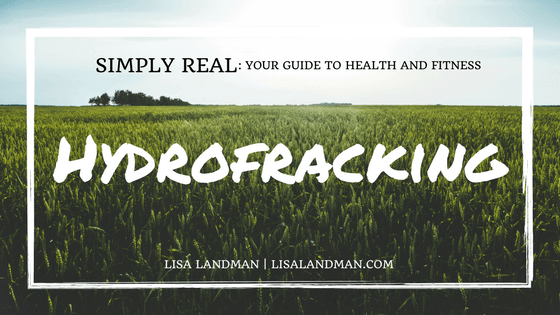Hydraulic fracturing or “fracking” is a means of extracting natural gas by pressure-drilling a mix of water, sand and chemicals more than a mile vertically and horizontally into the earth. The sand and chemicals break up the dense rock to release methane, the compound comprising natural gas. By design, hydrofracking causes underground explosions that fracture rocks and release gas, along with radioactive and other carcinogenic and highly toxic substances from deep within the earth. The methane along with the fracking fluid, which becomes infused with the chemical additives, heavy metals and radioactive material is pumped back up to the surface. These carcinogens, along with the radioactive materials and the fracking fluid can contaminate aquifers and spoil water supplies potentially sickening people, vegetation and animals.
This issue was brought to mainstream media by the HBO documentary Gasland which tells the story of how fracking has become the dominant technology in US gas production. The Energy Policy Act of 2005 allowed energy companies to conceal as trade secrets the chemicals they use to help the drilling liquid reach and fracture the shale. But reports by whistle blowers, and industry documents have revealed that the trade secrets clause is being used to cover the fact that dangerous compounds like butoxyethanol, formaldehyde, ethylene glycol, hydrocholoric acid, sodium hydroxide and benzene are posing a major health risk to an increasing numbers of Americans. The filmmaker traveled across 32 states to meet rural residents who live near areas of fracking and investigate the consequences of the practice on the residents and on the food supply. He discovered toxic streams, ruined aquifers, dying livestock, severe illnesses, and kitchen sinks that burst into flame.
For the farmers who live near areas of fracking and produce the nation’s food supply the problems with fracking have become enormous. Soil contamination is one of the many issues that farmers are facing. Explosions, spills, flares and leaky gas pipes have all been shown to have negative effects on agricultural soils. One study demonstrated that gas flaring adversely affects soil fertility; causing the soil to become more acidic and reducing total organic carbon, nitrate, and phosphate content. Another found that methane from pipeline leaks changed the oxygen and bacterial composition of the soil, and altered a plant’s ability to fix nitrogen, to successfully complete the process of cellulose conversion, and to maintain an adequate hydration level. These issues are relevant because the toxic chemicals and radioactive elements accumulated within plants travel throughout the food chain from one living organism to the next, eventually reaching human consumers.
Another issue the farmers are facing is livestock poisoning. Livestock often drink surface water from ponds and streams which can be contaminated in the process of handling fracking fluids at the surface. The injecting, withdrawing, collecting, storing and disposing of massive amounts of highly toxic liquids such as fracking fluids can lead to spills which can have very big effects on livestock by contaminating their drinking water or the grasses that they eat. In addition, wastewater can be extremely saline and have as much as five times more salt than the ocean. Livestock are attracted to the saltiness of the water contaminated with these fluids. Further, there are growing documented reports of livestock illness and death from acute toxicity poisoning from exposure to these spills.
Unfortunately, most food is not adequately inspected for chemical residues. Even in cases with known exposure to fracking chemicals, there is no system in place for the testing of affected crops or meat for such toxins. The Government Accountability Office reports that the National Residue Program, the program responsible for monitoring chemical residues, is missing known heavy metal residues and chemicals present in meat and poultry. The USDA, FDA, and EPA, all responsible in part for the program, may not have complete information on fracking chemicals. Therefore, the extents to which potentially harmful fracking chemicals may affect our food are unknown. It is essential that the government agencies responsible for food regulation recognize the scope of the potential impacts and develop regulations to minimize them to the greatest extent possible. And as consumers, we must educate ourselves about the quality of food we eat and the practices that affect our food and that could potentially be harmful to us and our families.
Lisa Landman is a fitness and health guru. Learn more about her professional work or check out her Twitter!

